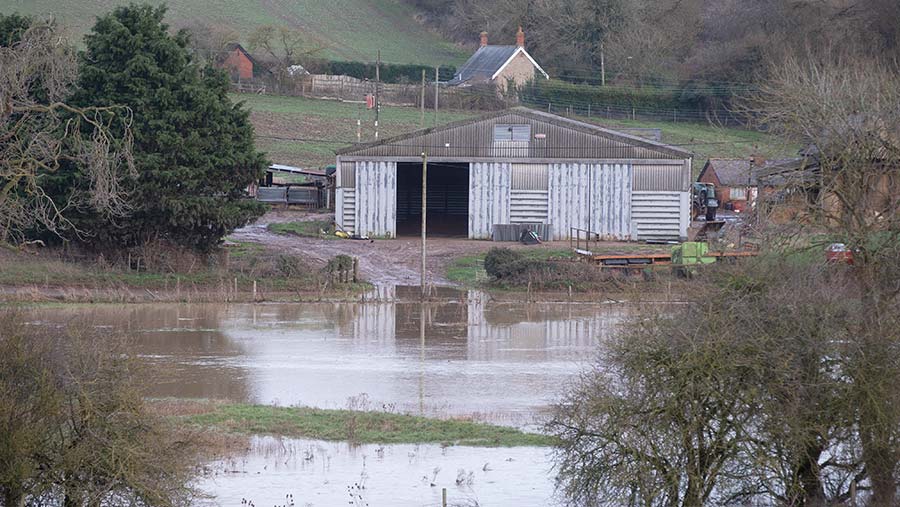How is extreme weather affecting the insurance market?
 © Tim Scrivener
© Tim Scrivener Whether you have a legal, tax, insurance, management or land issue, Farmers Weekly’s Business Clinic experts can help.
Esther Kane, head of rural at A-Plan Rural Insurance, advises on how to make a farm business a good risk, and what extreme weather is doing to the insurance market.
See also: Business Clinic – how do I ensure rebuild value is accurate?
Q: I’ve read previous Business Clinic advice on dealing with extreme weather and we experienced first-hand the storms and floods earlier in the year. Now we have heatwaves and many fires across the country.
What is this doing to the insurance market and is there anything further we (farmers) can do to mitigate the potential damage and/or insurance costs?
A: There’s no doubt that climate change is causing more extreme weather.
Let’s start with the impact on the insurance market and then consider damage avoidance and potential insurance implications.
What determines insurance premium?
Insurance is an equation that works on the basis that the “contributions of the masses pay for the losses of the few”, which requires us all to ensure that it is not the masses that experience the losses.
Competing insurers attempt to provide cover at a premium that supports this model and offers fair value for each customer, considering both market-wide factors and those affecting individual farms.
Current market considerations are:
- Rising building costs as result of inflation and disrupted supply chains
- Higher number of claims a result of more extreme weather conditions
- Increased size of potential liability claims
As a result, we have seen:
- Higher premiums and more stringent underwriting (insurers require more information and become less flexible)
- Reduced cover (higher excesses and lower policy limits)
- Reduction in capacity (insurers making losses withdraw from the market)
You will likely have experienced these changes first hand. Insurers also account for risk on a farm-by-farm basis:
- The business and its activities: what are the risks on the farm?
- Management and preparation: what is being done to manage/reduce the risks?
- Claims history: what does this indicate about the effectiveness of the farm’s risk-management?
The impact of unprecedented weather on top of inflation, supply chain disruption and increased claim costs further exacerbate insurers’ poor financial outcomes. It has never been more important for farmers to incorporate robust risk-management and maintenance programmes into their business practices.
How to prepare for the risks
While insurers must react to and prepare for changes affecting the sector, the more that each farmer can do to manage their own risk, the better it is for everyone:
- Have an overall farm risk management plan, (including fire safety and risk assessments) for everyone to follow and update
- Formalise a building maintenance programme to ensure essential work is carried out and future work is budgeted for
- Complete a farm valuation to ensure that building sums insured remain accurate following rapid recent inflation in materials and labour
- Train your employees on the risks, jobs and equipment they are exposed to
- Review your claims record and identify avoidable recurring losses.
The prolonged dry spell and high temperatures mean the risk of fire is on all our minds. However, think ahead to what happens when the rain arrives and cannot be soaked up by the hardened ground. Tips to prevent flash flooding:
- Create run-off pools and sediment traps to reduce potential flooding
- Avoid directing any run-off water towards roads and water sources such as brooks and streams
- Release any built-up roof water into soakaways, to slow down the flow and help with deep drainage
- Move all livestock and equipment away from muddy, high-risk fields to prevent water damaging equipment or injuring livestock
- Use low-ground pressure tyres to reduce soil compaction.
Make your broker aware of the preventative steps you take as it will help them to negotiate the best terms for you.
Do you have a question for the panel?
Outline your legal, tax, finance, insurance or farm management question in no more than 350 words and Farmers Weekly will put it to a member of the panel. Please give as much information as possible.
Email your question to FW-Businessclinic@markallengroup.com using the subject line “Business Clinic”.
